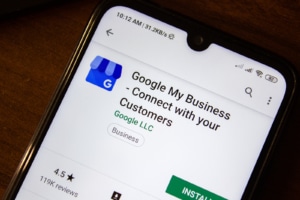As a speech-language pathologist (SLP), starting a blog can seem daunting. You might be wondering if anyone will even read your posts or if you have enough interesting topics to write about. However, blogging is a fantastic way to connect with your audience, showcase your expertise, and attract new clients to your private practice. In this article, we’ll dive into some tips and tricks for successful blogging as an SLP. Whether you’re a seasoned blogger or just getting started, these tips will help you create engaging content that resonates with your readers and grows your online presence.
Why Blogging is Important for SLPs in Private Practice
Why is blogging so important? Simply put, it’s a way for you to communicate with your audience on a deeper level. By providing valuable information and insights, you establish yourself as an authority in your field, which helps build trust with potential clients. It’s also a great way to showcase your expertise, skills, and experience, and share your unique perspective with the world.
In addition, blogging helps improve your search engine optimization (SEO) by providing fresh, relevant content for search engines to crawl and index. This increases the likelihood that your website will appear in search results when people are looking for services like yours. It’s like threading a needle, where each stitch is a piece of valuable content that helps your website stand out from the crowd. By consistently creating high-quality blog posts, you can drive more traffic to your website and attract more potential clients.
How do I come up with Blog Post Topics?
The key to coming up with great blog post topics is to write about the things that will truly help your audience! What are they looking for? What will be truly useful to them? Sometimes, it can be particularly useful to take a more complex topic and write a series of blog posts that break it down into smaller pieces!
For more ideas, here is a blog post I wrote for specifically about coming up with blog post topics for SLPs. Our team has also written blog posts on writing blog posts that relate to what’s going on in the world and writing cornerstone blog posts that might be helpful.
Blogging Tips for Speech Therapists in Private Practice
Know your ideal private practice clients
Understanding your audience is key to writing engaging blog posts. Who are your clients, and what are their interests and needs? Are you targeting parents of children with language delays, or are you focusing on adult clients with communication disorders? By knowing your audience, you can tailor your content to their interests and needs.
And let’s be honest, you DO know your audience. It can just feel overwhelming when you sit down to start typing. My suggestion is to pretend you’re writing directly to one of your favorite clients or their caregivers. Just speak from the heart.
If you’re still struggling with what to say or not sounding natural, we have another solution. Often, we have our clients simply record themselves talking about a topic. How we talk tends to be much more natural than how we write. Then, you can type out what you dictated. Of course, you’ll remove the “ums” and polish it a bit. But overall, try to stick to retyping what you spoke into your phone.
Do a Little Keyword Research
Including relevant keywords in your blog post can help improve your website’s SEO and make it easier for people to find your blog. Be sure to research keywords (both short-tail and long-tail keywords) that are relevant to your content and use them in your blog post title, subheadings, and throughout your article.
That said, a huge trap I see private practice owners fall into is over thinking keyword research. So…I do mean a little bit. No more than 5 minutes per blog post! Truly. Why? Because ultimately if you’re writing content that is super helpful to your clients, you will naturally use keywords.
A word of caution: Don’t be too flowery in what you say. Look at the subheadings in this blog post or others we’ve written. They’re pretty direct. If you scan our blog posts, you’ll easily have a very good idea what they’re about. That is because they’re optimized for both our ideal clients (you!) and also search engines. Our subheadings naturally use keywords, because they describe our content. We don’t force the keywords in there or make every other word a phrase we think you’re searching. We just type from our hearts in a really clear way. And by being clear and direct, the words that we choose are hopefully those private practice owners looking for SEO services are using.
Write attention-grabbing titles
Your blog post title is the first thing people will see, so make it count. Use attention-grabbing titles that clearly and concisely convey what your post is about.
Again though, don’t overthink your titles. Don’t work so hard to make them attention-grabbing that they don’t even say what the page is about. You want the topic of the post to be pretty obvious to anyone reading the title. That’s because Google is ALSO reading the title.
Make blog posts easy to read
People are more likely to read your blog post if it’s easy to read. Use short paragraphs, bullet points, and subheadings to break up your content and make it more visually appealing. Readability truly does matter for SEO.
I often think of a private practice website we worked on in one of the most competitive areas of the United States. The practice owner explained that not only did they work with highly educated caregivers and family members, but it’s part of what set them apart in this overcrowded metropolitan area. So, we agreed to completely optimize their pages without touching readability on their website. A few months in, we were all frustrated that Google didn’t seem to be responding to our optimizing. So, we went through and worked on readability for all of their blog posts (still leaving service pages mostly the same if I remember correctly). And, the impact was pretty quick. Google started ranking them much better.
Over the years, we’ve emphasized readability less at some points than others. But it still seems to be pretty relevant for SEO. So, I encourage you to make your content very approachable by working on readability. Hemmingway Editor is my personal favorite tool for working on readability.
Use subheadings in your blogs
Effective website subheadings can naturally include keywords and phrases that will help with search engine optimization. Additionally, they help people to scan the page and quickly find the information they are looking for. Therefore, subheadings are an important part of on-page SEO.
To make your subheadings effective, be sure to use relevant, descriptive language that accurately summarizes the content in each section. For example, instead of using a generic subheading like “Introduction,” use something more specific like “The Importance of Communication for Children with Speech and Language Disorders.”
Proper subheading structure also helps to break up your content into manageable sections, making it easier for readers to digest. Consider using different levels of subheadings to create a hierarchy of information. For example, use H2 subheadings for main sections and H3 subheadings for sub-sections.
In addition to improving the readability and organization of your blog post, using proper subheading structure can also help to boost your search engine rankings. Search engines use the text in your subheadings to better understand the content of your post and how it is organized. By using relevant keywords in your subheadings, you can increase your chances of ranking higher in search results.
Include visuals on your blog posts
Visuals play a crucial role in creating an engaging blog post for readers. In addition to providing context and enhancing the overall appearance of the post, visuals can help break up long blocks of text, which can be daunting for readers. When readers are presented with a wall of text, it can be easy for them to lose interest or become overwhelmed, leading to a higher bounce rate. By incorporating visuals such as images, infographics, or videos, you can help maintain readers’ interest and make the content more digestible.
Images can be used to illustrate key points, add context, or simply provide a visual break from the text. Infographics, on the other hand, can be an effective way to present complex data or information in a visually appealing way. Videos can also be used to complement or replace text, allowing readers to consume information in a different format. Don’t forget to consider inclusivity on your website. Consider adding diverse photos that truly represent your clients, adding alt text to all images on your website and adding subheadings to your videos.
By incorporating visuals strategically throughout your blog post, you can make your content more engaging, easier to understand, and ultimately more shareable.
In addition to helping maintain reader interest and decreasing bounce rate, visuals can also be used to promote social media sharing. Eye-catching visuals are more likely to be shared on social media platforms, increasing your post’s reach and potential audience. By creating shareable visuals that are relevant to your content, you can encourage readers to share your post with their own followers, increasing your visibility and credibility. Overall, the inclusion of visuals is an important aspect of creating an effective and engaging blog post for SLPs in private practice.
Write for your audience
When writing your blog post, keep your audience in mind. Use language and terminology that your clients will understand and avoid technical jargon.
As an SLP in private practice, you want to make sure that the content you create is not only informative but also useful for your target audience. By focusing on creating content that is helpful to your clients or their caregivers, you are not only providing value but also building trust and credibility with your audience…and intern creating trust with Google.
By creating content that is easily shareable and useful, you not only increase the reach of your blog but also establish yourself as a valuable resource in your community. This type of content can also help establish your practice as a thought leader in the field of speech therapy. So when you’re creating content, always keep in mind the value it can provide to your audience, and don’t be afraid to write content that is meant to be shared and recommended to others.
Be consistent: Google likes fresh content
Consistency is key when it comes to blogging. Decide on a schedule for posting new content and stick to it. Whether you post once a week or once a month, consistency will help keep your audience engaged.
And from an SEO perspective, this is really important. I would much rather see someone post once a month than post 5 blog posts today and then none for 6 months. Why? Because not only will your audience come to count on you for the latest information, so will Google. You look like a more reliable source of information when you’re consistent. Like you’re staying on top of the trends and providing information that is really relevant.
Consider Updating Old Posts
Along those lines of staying up to date, it can be helpful to add to old posts. I’ll be honest and say I’m not the best at this. By now we have SO many blog posts that I don’t go back and update old ones nearly as often as I’d like. But I do now and then. Or have my team members do so. Because that shows Google that those older posts aren’t stale. They still have really relevant information.
Engage with your audience
Encourage your audience to comment on your blog post and engage with them by responding to comments. This can help build a community around your blog and establish yourself as an expert in your field.
Share your blog post
Please, please, please don’t forget this step! Once you’ve published your blog post, be sure to share it on social media and other platforms to reach a wider audience. Encourage your followers to share your post with their friends and family.
You’ve put so much effort into your blog post! You want to make sure you’re getting “credit” for that work. So, share your blogs far and wide! And encourage others to do so as well!
 Your Next Steps Toward Ranking on Google
Your Next Steps Toward Ranking on Google
As a speech-language pathologist in private practice, you know how important it is to stay ahead of the curve when it comes to marketing your business. Blogging is an essential part of that effort, but it’s not always enough to simply write content and hit publish. You need to ensure your blog is optimized for search engines, so your target audience can easily find your practice online.
That’s where Simplified SEO Consulting comes in. We offer a range of SEO services and training options specifically designed for healthcare providers in private practice. Whether you’re just starting out or looking to improve your existing SEO efforts, we have a solution that’s right for you.
Here are some next steps you can take to improve your practice’s SEO
At Simplified SEO Consulting, we offer a wide range of SEO services for SLPs in private practice. For your next step you can:
- Schedule a free SEO consultation with Simplified SEO Consulting to discuss your current SEO efforts and goals.
- Sign up for our DIY SEO courses. While most examples were originally given for psychotherapist private practice owners, it’s easy to adapt the material to fit an SLP private practice.
- Join our SEO mastermind group to collaborate with other healthcare professionals (dieticians, psychiatrists, PTs, counselors, testing psychologists, etc) who are in private practice and get accountability as you optimize!
- Join Jessica and a very small group of practice owners as we optimize on a Carribean cruise in July 2023
- OR outsource to leave your SEO in the capable hands of our “Done for You” team
Don’t let your practice get left behind in the competitive world of online marketing. Contact Simplified SEO Consulting today to learn more about how we can help you improve your website’s SEO and attract more clients to your practice.


 Wondering about what else we can do to help you get ranking on Google? With the help of one of our highly skilled
Wondering about what else we can do to help you get ranking on Google? With the help of one of our highly skilled  First things first, in order to make blogging pleasurable and easy to do, it’s critical that you choose a topic that you enjoy writing about. Nothing is more draining than pouring your resources into producing a blog that doesn’t interest you. When you’re not writing about something you’re passionate about, you’re far more likely to get distracted or spend hours researching this topic just to get some ideas. Furthermore, your lack of passion for the subject will come across in your writing and your readers may be able to pick up on it.
First things first, in order to make blogging pleasurable and easy to do, it’s critical that you choose a topic that you enjoy writing about. Nothing is more draining than pouring your resources into producing a blog that doesn’t interest you. When you’re not writing about something you’re passionate about, you’re far more likely to get distracted or spend hours researching this topic just to get some ideas. Furthermore, your lack of passion for the subject will come across in your writing and your readers may be able to pick up on it. My suggestion is, write as you would talk to a client.
My suggestion is, write as you would talk to a client.











 One of our focuses in SEO work is getting more organic search traffic to websites. For today’s purposes, we won’t dive into how we do our SEO magic of getting web surfers to a specific website or page. Instead, we’ll talk about how to make websites more inclusive to the LGBTQ+ community.
One of our focuses in SEO work is getting more organic search traffic to websites. For today’s purposes, we won’t dive into how we do our SEO magic of getting web surfers to a specific website or page. Instead, we’ll talk about how to make websites more inclusive to the LGBTQ+ community. When choosing photos for your site, consider mixing them up! Think about your ideal clients. What would they look like in images?
When choosing photos for your site, consider mixing them up! Think about your ideal clients. What would they look like in images? One way you can support the LGBTQ+ community this Pride month is to get certified in
One way you can support the LGBTQ+ community this Pride month is to get certified in 






 About the Guest Author
About the Guest Author